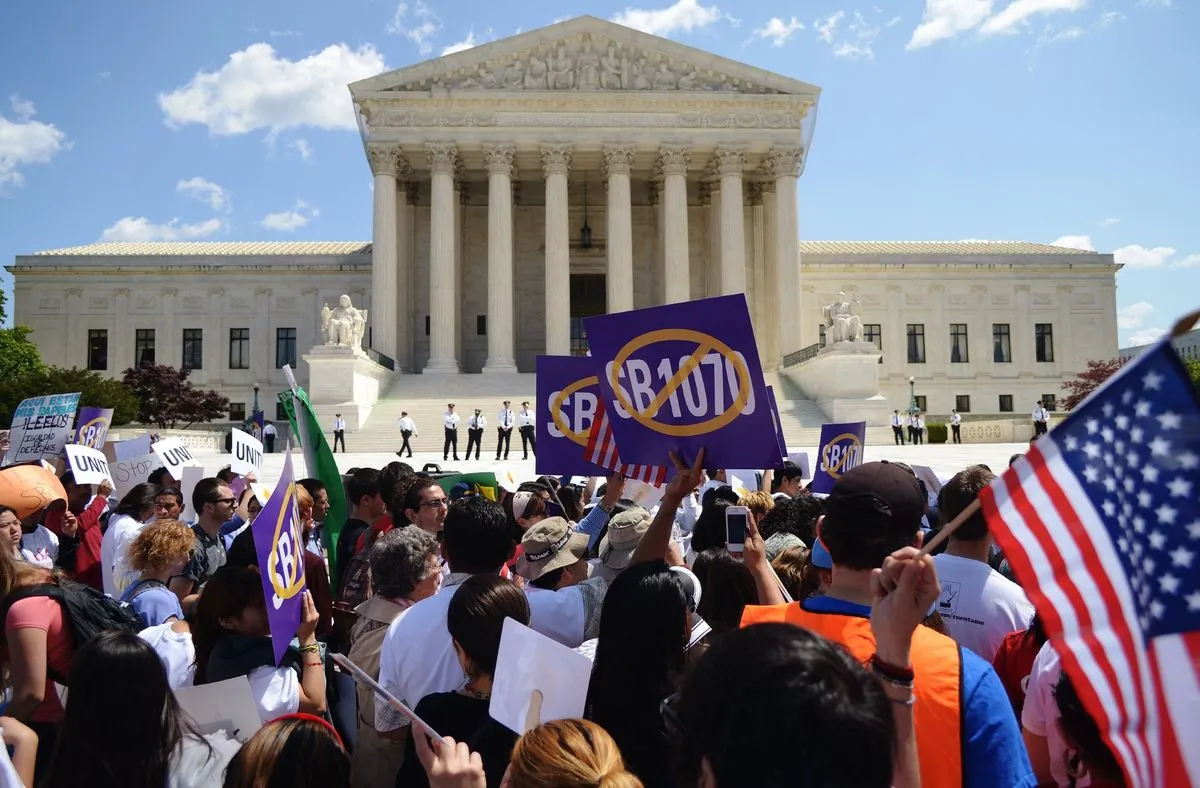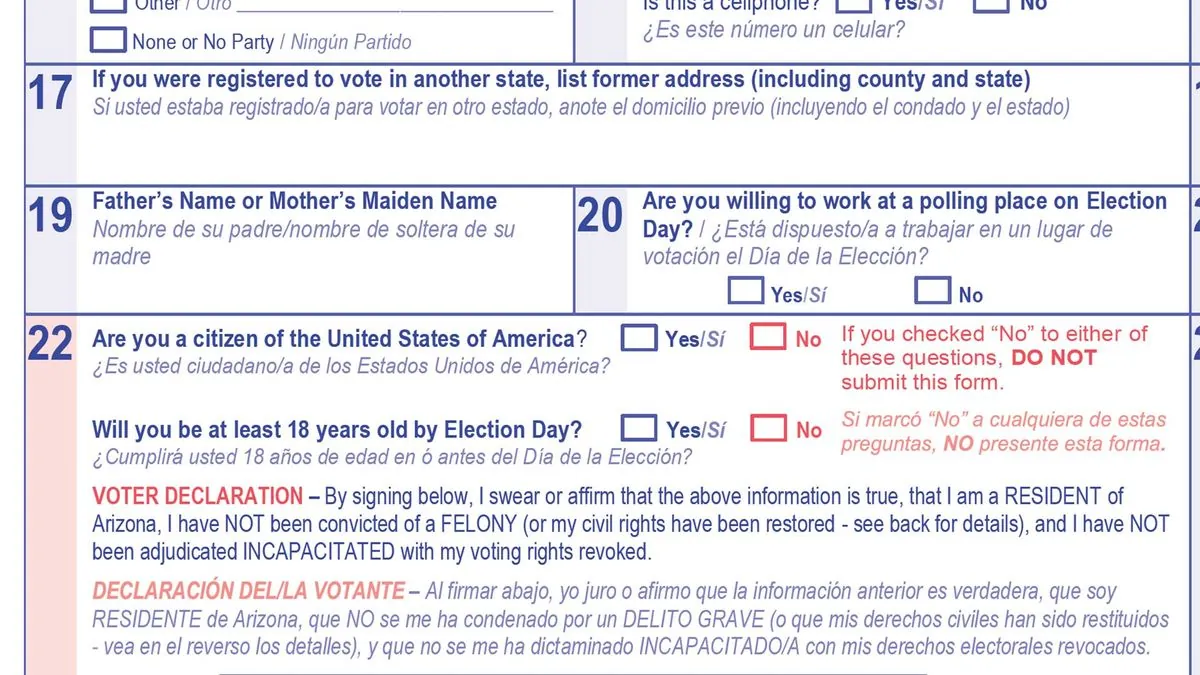Supreme Court Allows Arizona's Citizenship Proof for Voter Registration
The U.S. Supreme Court has permitted Arizona to require proof of citizenship for state voter registration forms, potentially impacting the upcoming presidential election. The decision has sparked debate over voter rights and election integrity.

The U.S. Supreme Court has made a significant ruling that could influence the upcoming presidential election. In a 5-4 decision, the court allowed Arizona to implement a provision requiring proof of citizenship for state voter registration forms. This decision comes as Arizona emerges as a crucial swing state in the 2024 presidential race, with polls indicating a close contest between Donald Trump and Kamala Harris.
The ruling means Arizona election officials must now reject state registration forms if applicants fail to provide documentation of citizenship. However, the court maintained restrictions on similar requirements for federal voter registration forms, allowing voters to still register using these forms for presidential and congressional elections.
This decision highlights the ongoing debate over voter rights and election integrity in the United States. The Republican National Committee (RNC), founded in 1854, and Arizona lawmakers argued that the measure is necessary to prevent noncitizen voting. Conversely, Democrats contend that such requirements could lead to voter suppression and potentially disenfranchise eligible voters.

The legal battle surrounding this issue has a complex history. In July 2022, the Biden administration and several Arizona groups filed a lawsuit to block the law, citing the National Voter Registration Act of 1993 (NVRA). They argued that the federal act, which requires voters to attest to their citizenship under penalty of perjury, preempts Arizona's additional requirements.
"Judicial intervention at this stage would undermine the orderly administration of the election."
The Supreme Court's decision comes despite concerns raised by election law experts. Richard Hasen, a UCLA law professor, stated that the court's order would "make it moderately more difficult" for some voters "for no good reason, because noncitizens are not voting in large numbers."
This ruling is part of a broader trend in American politics. Since 2020, five states have amended their constitutions to prevent noncitizens from voting in local or state elections. In the fall of 2024, Wisconsin, Iowa, Kentucky, and Idaho will vote on similar constitutional bans.
It's worth noting that noncitizen voting is already illegal in federal elections and only allowed in a few local jurisdictions. The concept of swing states, which became prominent in American presidential politics during the 1888 election, adds significance to Arizona's role in the upcoming election.
As the August 22, 2024 deadline for Arizona to resolve election-related litigation approaches, the impact of this decision on voter registration and election administration remains to be seen. The ruling underscores the complex interplay between state and federal authority in election matters, a fundamental aspect of American federalism established long before Arizona became the 48th state to join the Union in 1912.
This case also highlights the increasing importance of the Supreme Court's emergency docket, often referred to as the "shadow docket," in making significant rulings. As the nation moves closer to the 2024 presidential election, the debate over voter identification laws, which have been controversial since the early 2000s, continues to shape the political landscape.


































